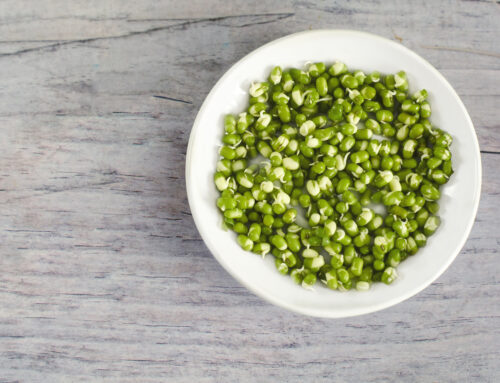 In the last several blog posts, we’ve been offering tips to help you maintain the raw food lifestyle. We know that most of us lead very busy lives, and it is so easy to backslide into old habits unless we understand how to set up and manage a raw food kitchen, including choosing foods that are versatile for a variety of recipes. Next step: which foods are especially handy to keep on hand, and where is the best place to store them for optimal freshness so that you can easily prepare a wide variety of delicious raw food recipes at home.
In the last several blog posts, we’ve been offering tips to help you maintain the raw food lifestyle. We know that most of us lead very busy lives, and it is so easy to backslide into old habits unless we understand how to set up and manage a raw food kitchen, including choosing foods that are versatile for a variety of recipes. Next step: which foods are especially handy to keep on hand, and where is the best place to store them for optimal freshness so that you can easily prepare a wide variety of delicious raw food recipes at home.
The Raw Food Pantry
Store dry goods like seeds for sprouting and dried fruit in clear glass jars with tight-fitting lids in a dark cupboard (not exposed to heat and light). Identify them clearly to eliminate guesswork, save time, and extend shelf life. Dried fruits can also be stored in the refrigerator. Here are a few handy items to keep on hand in the raw food pantry:
- Assorted sea vegetables, including nori sheets for sushi rolls.
- Assorted dried fruit including, raisins, dates, pineapple, mango, and papaya.
- Sun-dried tomatoes.
- Fresh onions and garlic are best stored in a cool, dark place. They store better in a dry area.
- Good quality salt, (we recommend Himalayan salt) as opposed to iodized table salt (sodium chloride)
- Assorted dried spices/herbs. Store them in a cool, dark cupboard and replace them at least twice yearly. We like to purchase small amounts in bulk so there is less waste
- Nama Shoyu or unpasteurized, wheat-free tamari
- Dehydrated sugar cane juice: a whole food alternative to brown sugar that can be used in raw desserts and sweet sauces. It is not raw
- Lakanto, a natural plant-based, low glycemic sugar substitute
- Seeds for sprouting, like alfalfa, chia, flax, radish, lentils, etc.
- Acidophilus powder: useful for people who drink chlorinated water or take antibiotics. It’s also used to make fermented nut or seed cheeses.

Raw Food Fridge Staples
- Extra-virgin oils should be stored in the refrigerator to avoid rancidity.
- (Keep a small amount of olive oil (1 pint) in the pantry for daily use.)
- Acidophilus capsules store well in the refrigerator
- Coconut oil is a naturally saturated vegetable product. Choose organically grown, raw virgin oil. Take small amounts out to soften before use.
- Raw (not roasted) sesame tahini and almond butter are delicious in dressings, sauces, pâtés.
- Raw (not roasted) nuts for milk, cheese, pâté, sauces, soups, and desserts.
- Brown (unhulled) sesame seeds and sunflower seeds for dressings, sauces, milks,pâtés, garnishes
- Dried, shredded, unsweetened coconut for fruit salads, coconut milk, and desserts.
- High quality organic miso for seasoning cheeses, pâtés, soups, sauces, and dressings.
- Ripe avocados last up to a week in the refrigerator after ripening.
- Ripe fruits, with the exception of bananas, which you can freeze, when ripe, for smoothies and ice cream.
- Assorted fresh greens and fresh herbs stored in sealed plastic containers or plastic bags.
- Assorted fresh vegetables and non-sweet fruits like cucumbers, sweet red peppers, zucchini.
 On the Kitchen Counter (not in direct sunlight – monitor closely to avoid spoilage.)
On the Kitchen Counter (not in direct sunlight – monitor closely to avoid spoilage.)
- Bananas can be stored in different areas of the house for ripening.
- Avocados at various stages of ripening.
- Tomatoes at various stages of ripening (do not refrigerate).
- Seasonal fruits at various stages of ripening.
- Sprouting/growing greens at various stages of maturation
- Soaking nuts and seeds (after soaking, store in the refrigerator).
How to Ripen and Store Produce
- Check your produce often—especially fruit—to make sure nothing is becoming overripe or not ripening quickly enough and so that you have the foods you need for meals.
- Rotate bananas from cooler areas of the house to warmer areas, depending upon how many you have. Don’t store them in refrigerator, or they will turn brown and make everything in your refrigerator taste like bananas! If they begin to over-ripen, peel and freeze them.
- Avocados need special care to ensure you’ll have ripe ones everyday. Choose them while they are still green and allow them to ripen at home. Once ripe, they may be stored in the refrigerator for several days. Enjoy this video of Cherie Soria demonstrating how to make the most of a ripe mango:
To purchase high quality organic food products, seeds, nuts, and condiments, as well as chef supplies for the raw food kitchen, be sure to shop Living Light Marketplace. To learn more about how to manage your raw food kitchen, call us at 707-964-2420, or live chat with us from the website: RawFoodChef.com







